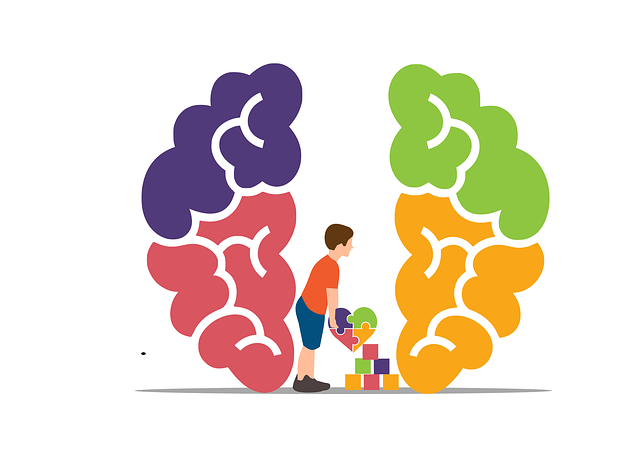Risk assessment is vital in mental health practice with vulnerable adolescent teens, emphasizing safety for both clients and practitioners. Acceptance and Commitment Therapy (ACT) offers an evidence-based approach, teaching teens emotional flexibility through accepting emotions and committing to positive actions. Integrating policy analysis and stress management techniques, ACT addresses systemic issues and promotes professionals' well-being, enhancing therapy outcomes for adolescents. This therapy equips teens with tools to manage distressing thoughts and emotions, treating symptoms while empowering them to lead fulfilling lives aligned with personal goals. Prioritizing safety, empathy, and effective communication in therapeutic treatment creates a supportive environment for adolescent teens to overcome challenges effectively.
In the dynamic field of mental health practice, risk assessment is an indispensable tool for ensuring client safety. This comprehensive article delves into essential aspects of risk management, focusing on strategies tailored for therapy with adolescent teens. We explore the foundational concept of Understanding Risk Assessment in Mental Health Practice, highlighting its role in fostering secure therapeutic environments. Additionally, we delve into the effectiveness of Acceptance and Commitment Therapy (ACT) for adolescents, offering a powerful approach to mitigate risks and enhance safety in therapy sessions.
- Understanding Risk Assessment in Mental Health Practice
- Implementing Acceptance and Commitment Therapy for Adolescent Teens
- Strategies for Mitigating Risks and Enhancing Safety in Therapy
Understanding Risk Assessment in Mental Health Practice

In mental health practice, risk assessment is a crucial component that helps professionals understand and mitigate potential hazards within their work. It involves a systematic process of identifying, evaluating, and managing risks to ensure the safety and well-being of both clients and practitioners. For therapists working with adolescent teens, this becomes even more critical as youth often present unique challenges related to emotional vulnerability and complex life experiences. Acceptance and Commitment Therapy (ACT), for instance, is an evidence-based approach that can be effectively employed in risk assessment, promoting positive outcomes by helping teens accept their emotions, commit to valued actions, and foster resilience.
Integrating Mental Health Policy Analysis and Advocacy into risk management strategies is essential. This involves not only recognizing individual risks but also understanding broader systemic issues that may impact a teen’s mental health. By considering these factors, therapists can tailor their interventions and advocate for policies that support adolescents’ mental well-being. Additionally, stress management techniques are vital tools in mitigating risks, enabling professionals to maintain optimal performance and avoid burnout while providing therapy for adolescent teens.
Implementing Acceptance and Commitment Therapy for Adolescent Teens

Implementing Acceptance and Commitment Therapy (ACT) for adolescent teens is a promising approach within the field of mental health education programs design. ACT prioritises psychological flexibility, encouraging individuals to accept their experiences while committing to valued actions. This therapy has shown effectiveness in trauma support services for young people, helping them navigate emotional challenges and develop resilience. By fostering emotional intelligence, ACT equips teens with tools to manage distressing thoughts and emotions without avoiding or suppressing them.
Through engaging activities and techniques tailored to adolescents’ developmental stage, ACT promotes present-moment awareness and values-driven behaviour. This can be particularly beneficial for those experiencing anxiety, depression, or post-traumatic stress disorder (PTSD). By integrating these evidence-based practices into mental health services, professionals can offer comprehensive support that not only addresses symptoms but also empowers teens to lead fulfilling lives aligned with their personal goals and values.
Strategies for Mitigating Risks and Enhancing Safety in Therapy

In the therapeutic journey, particularly with adolescent teens, mitigating risks and enhancing safety are paramount for mental health professionals. Acceptance and Commitment Therapy (ACT) offers robust strategies to achieve this. By fostering a non-judgmental atmosphere and encouraging acceptance of negative thoughts and feelings, ACT empowers teens to focus on values-driven actions. This approach not only builds resilience but also strengthens the therapeutic alliance, a cornerstone in effective treatment.
Moreover, empathy building strategies and communication techniques play a pivotal role in risk mitigation. Mental health professionals can create a safe space for teens to express their emotions and fears openly. Regular feedback sessions, tailored interventions, and continuous evaluation through mental health policy analysis and advocacy ensure that the therapy remains relevant and responsive to the evolving needs of adolescent clients. These comprehensive strategies collectively contribute to fostering an environment where teens feel understood, supported, and empowered to navigate challenges effectively.
Mental health professionals play a vital role in fostering resilience among adolescent teens. By understanding risk assessment and implementing evidence-based practices like Acceptance and Commitment Therapy, therapists can create a safe and supportive environment. Strategies to mitigate risks enhance the overall therapeutic experience, ensuring that young individuals receive effective care while navigating their mental health journeys. This comprehensive approach is key to revolutionizing therapy for adolescent teens.














